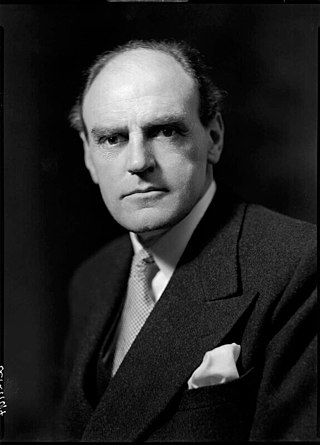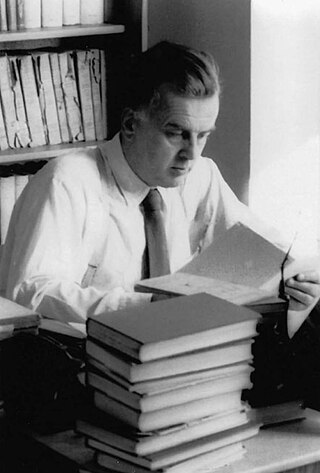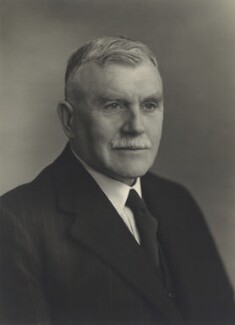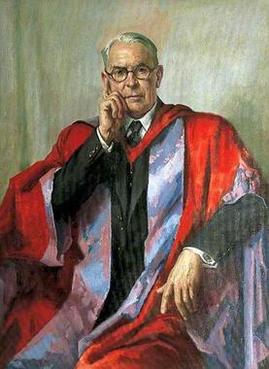Related Research Articles
A legislative council is the legislature, or one of the legislative chambers, of a nation, colony, or subnational division such as a province or state. It was commonly used to label unicameral or upper house legislative bodies in the British (former) colonies. However, it has also been used as designation in other (non-Commonwealth) nations. A member of a legislative council is commonly referred to as an MLC.

The Reith Lectures is a series of annual BBC radio lectures given by leading figures of the day. They are commissioned by the BBC and broadcast on Radio 4 and the World Service. The lectures were inaugurated in 1948 to mark the historic contribution made to public service broadcasting by Lord Reith, the corporation's first director-general.

The UCL Institute of Education (IOE) is the faculty of education and society of University College London (UCL). It specialises in postgraduate study and research in the field of education and is one of UCL's 11 constituent faculties. Prior to merging with UCL in 2014, it was a constituent college of the University of London. The IOE is ranked first in the world for education in the QS World University Rankings, and has been so every year since 2014.
Ivan Lloyd-Phillips CBE was a British national who served in the Colonial Administrative Service. He was the son of Arthur Lloyd-Phillips, Vicar of Ware.

Clement Attlee was invited by King George VI to form the Attlee ministry in the United Kingdom in July 1945, succeeding Winston Churchill as Prime Minister of the United Kingdom. The Labour Party had won a landslide victory at the 1945 general election, and went on to enact policies of what became known as the post-war consensus, including the establishment of the welfare state and the nationalisation of some industries. The government's spell in office was marked by post-war austerity measures, the violent crushing of pro-independence and communist movements in Malaya, the grant of independence to India, the engagement in the Cold War against Soviet Communism as well as the creation of the country's National Health Service (NHS).

Ripon College Cuddesdon is a Church of England theological college in Cuddesdon, a village 5.5 miles (8.9 km) outside Oxford, England. The College trains men and women for ministry in the Church of England: stipendiary, non-stipendiary, local ordained and lay ministry, through a wide range of flexible full-time and part-time programmes.

Robert James Martin Wight was one of the foremost British scholars of international relations in the twentieth century. He was the author of Power Politics, as well as the seminal essay "Why Is There No International Theory?". He was a teacher of some renown at both the London School of Economics and the University of Sussex, where he served as the founding Dean of European Studies.
The Colonial Service, also known as His/Her Majesty's Colonial Service and replaced in 1954 by Her Majesty's Overseas Civil Service (HMOCS), was the British government service that administered most of Britain's overseas possessions, under the authority of the Secretary of State for the Colonies and the Colonial Office in London. It did not operate in British India, where the same function was delivered by the Indian Civil Service, nor in the Anglo-Egyptian Sudan, which was administered by the Sudan Political Service, nor in the internally self-governing colony of Southern Rhodesia.
William Roger Louis CBE FBA, commonly known as Wm. Roger Louis or, informally, Roger Louis, is an American historian and a professor at the University of Texas at Austin. Louis is the editor-in-chief of The Oxford History of the British Empire, a former president of the American Historical Association (AHA), a former chairman of the U.S. Department of State's Historical Advisory Committee, and a founding director of the AHA's National History Center in Washington, D. C.

Malcolm Sathiyanathan Adiseshiah, was an Indian development economist and educator. In 1976 he was awarded the Padma Bhushan, India's third-highest civilian award. In 1998, UNESCO created the Malcolm Adiseshiah International Literacy Prize in recognition of his contribution to education and literacy. He was nominated to the Rajya Sabha, the upper house of the Parliament of India, in 1978.
Sir Harold Wyndham was Director-General of Education in New South Wales between 1952 and 1968. He chaired the committee whose report led to the Education Act 1961 which completely re-organised secondary education in NSW.

Sir Giles Bullard, was a British diplomat. His appointments included British Ambassador to Bulgaria and High Commissioner to the West Indies at the time of the American invasion of Grenada.

The Oxford Department of International Development (ODID), or Queen Elizabeth House (QEH), is a department of the University of Oxford in England, and a unit of the University’s Social Sciences Division. It is the focal point at Oxford for multidisciplinary research and postgraduate teaching on the developing world.
Royal instructions are formal instructions issued to governors of the United Kingdom's colonial dependencies, and past instructions can be of continuing constitutional significance in a former colonial dependency or Dominion.

Sir Reader William Bullard was a British diplomat and author.
Dame Margery Freda Perham was a British historian of, and writer on, African affairs. She was known especially for the intellectual force of her arguments in favour of British decolonisation in the 1950s and 1960s.

Joseph Walter Mountin MD was an American physician and career United States Public Health Service (USPHS) officer who was the founder of the U.S. Centers for Disease Control and Prevention in Atlanta, Georgia. Mountin eventually became an assistant surgeon general. He was involved in many advancements in medical and sanitary science during his lifetime. He was an early advocate for a national health care system and wrote frequently on the need to provide broader health care coverage. He was considered influential in the development of public health improvements.
Kenneth Ernest Robinson was a British civil servant and academic who specialized in colonial and Commonwealth affairs.
Sir John Christian Ramsay Sturrock CMG was a British colonial administrator. He served as Resident Commissioner in Basutoland, from 1926 to 1935.

Sir Alan Aird Moncrieff, was a British paediatrician and professor emeritus at University of London. He was most notable for developing the first premature-baby unit in 1947. It was Moncrief who recognised and developed the concept of daily parental visits to the ward, which he developed while at Great Ormond Street, well before the need for this became recognised, and with his ward sister, published an article on Hospital Visiting for Children in 1949.